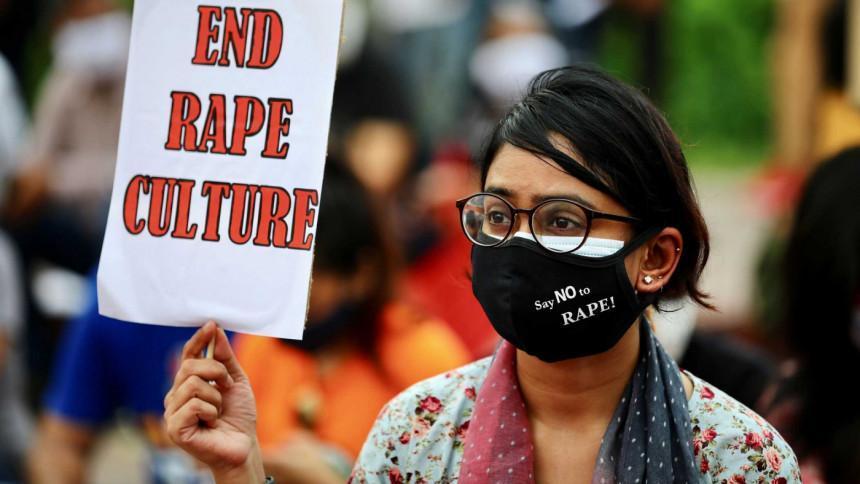Rape, limitation, and due process: Constitutional rights in action
The article below is authored by an academic researcher Md. Johir Uddin Shohag, published by The Daily Star this November, 2021.
Democratic society is based on consent. Sexual relationship must be consensual. Otherwise, it amounts to a crime according to section 375 of the Penal Code, 1860. The question of consent is raised in defence of the accused and therefore the onus probandi (burden of proof) rests on the accused, although the general principle is that the onus is on the prosecution.
In State of Himachal Pradesh v Shree Kant Shekari [AIR (2004) SC 4404], it was held that rape is a crime against fundamental right to life provided in article 21 of the Indian Constitution. This provision is akin to article 32 of the Bangladesh Constitution. Both the provisions protect not only the right to life, but also personal liberty. No offence is more severe an attack on personal liberty than the crime of rape. Sexual violence, the same court held, ‘is an unlawful intrusion on the right of privacy’. The ‘two-finger test’ has been declared unconstitutional both in India (2013) and Bangladesh (2018) because it violates women’s right to privacy, physical and mental integrity, and dignity. Moreover, the presumption of consent cannot be inferred from such an inhumane test.
Should there be any limitation in rape cases? There is a common law doctrine: nullum tempus occurrit regi. Time does not run against the crown. He has the divine right to run a state. People’s relation to God is mediated through the State. Consequently, crimes are committed against the State, and it is a party to a criminal case. Moreover, it has the authority to lodge a criminal case at any time. It is called sovereign immunity.
Earlier the sovereign was not barred by limitations in civil suits either. Now sovereign immunity in civil suits is progressively diminishing. Bangladesh, one of the heirs of the colonial legal system, still recognises sovereign immunity in some civil cases. As per section 26 of the Limitation Act, 1908, an individual cannot file a suit for easement right against the government after an ordinary period of 20 years. It requires an extraordinary period of 60 years.
To ensure fairness to the defendant, limitations are imposed, and adverse possession is recognised. The poor, under-privileged and women are susceptible to this principle due to the power imbalance in society. If such limitation is imposed in rape cases, the victims will be overpowered by the perpetrators. In most of the jurisdictions, no limitations are imposed in criminal cases. However, there are some summary offences barred by limitations in some jurisdictions. For example, unlawful use of a driver’s license is barred by limitation in Maryland. But the grave offences such as murder, rape and robbery have no limitation period.
Judges face a dilemma between ensuring justice for rape victims by allowing them to lodge cases at any time and protecting life and liberty of the accused by ensuring the reliability of evidence. In State of Himachal Pradesh v Shree Kant Shekari [AIR (2004) SC 4404], it was held that delay in filing FIR does not create any doubt as to the authenticity of the prosecution case. But the court must seek satisfactory explanation of such delay.
Whether it would be a violation of due process to deny any rape victims the right to file a case after 72 hours, even if semens of the perpetrator cannot be traced? The answer is yes. The victim would not be given the reasonable opportunity to present her case. It infringes the essential fairness of criminal procedure. Thereby it does manifest injustice. If medical evidence is not reliable, eyewitness, if any, and circumstantial evidence shall be adduced in the court of law. Fair procedures must be maintained for ensuring justice for the accused.
There is no time limitation in sections 154 and 157 of the Code of Criminal Procedure, 1898 or in any other law. The Bangladesh Constitution provides in articles 31 and 32 that criminal justice shall be done ‘in accordance with law’. The Indian Constitution is more specific in this regard. It uses ‘according to procedure established by law’ in article 21. In Maneka Gandhi v Union of India [AIR (1978) SC 597], it was held that procedure must be reasonable and non-arbitrary. These are two elements of ‘equality before law’ and ‘equal protection of law’ as provided in article 27 of the Bangladesh Constitution and article 14 of the Indian Constitution. Equality before law, one of the three aspects of Diceyan rule of law, has been incorporated in both the Constitutions. The 72 hours limitation certainly violates due process and equality before law.
In Mahmudul Islam’s opinion, the Indian Supreme Court virtually imported due process from the United States of America. However, article 31 of the Bangladesh Constitution begins with ‘[t]o enjoy the protection of the law, and to be treated in accordance with law, and only in accordance with law, is the inalienable right of every citizen’. This provision is broader than the American due process clause. It not only provides protection of life, liberty and property, but also of dignity, privacy and so on. In Naripokkho v Bangladesh [10 SCOB (2018) HCD 140], it was held that protection under article 31 ‘undoubtedly include[s] protection from sexual harassment’. It could be easily inferred that it also includes protection of law in rape cases.
Source: The Daily Star
Reference photo: Reuters


